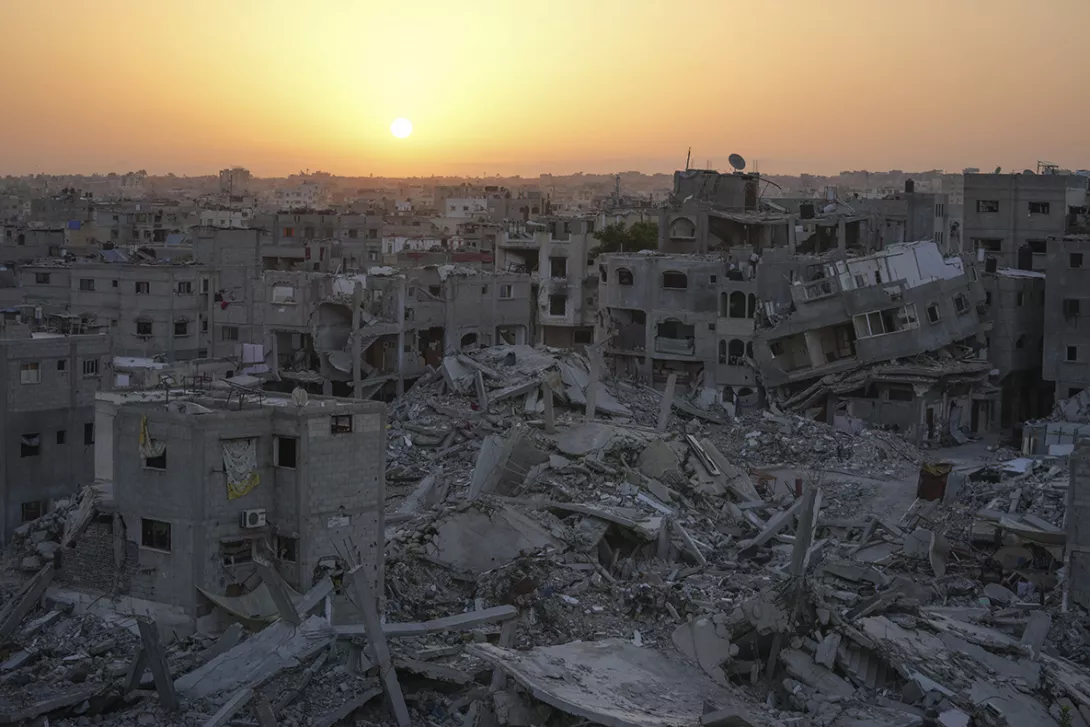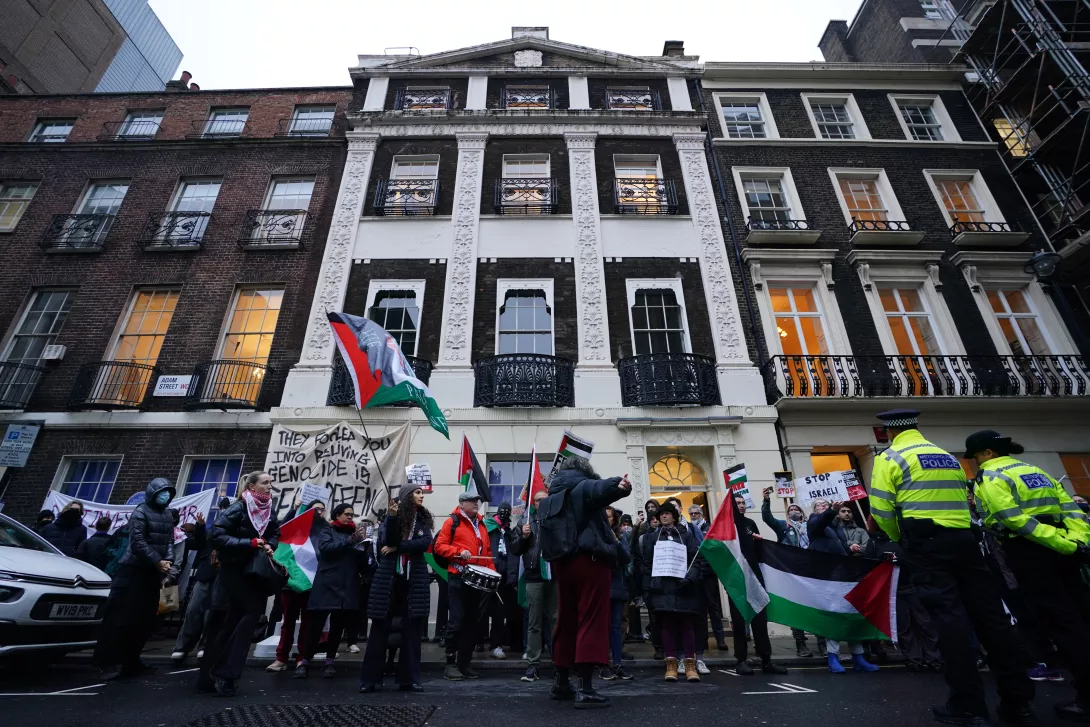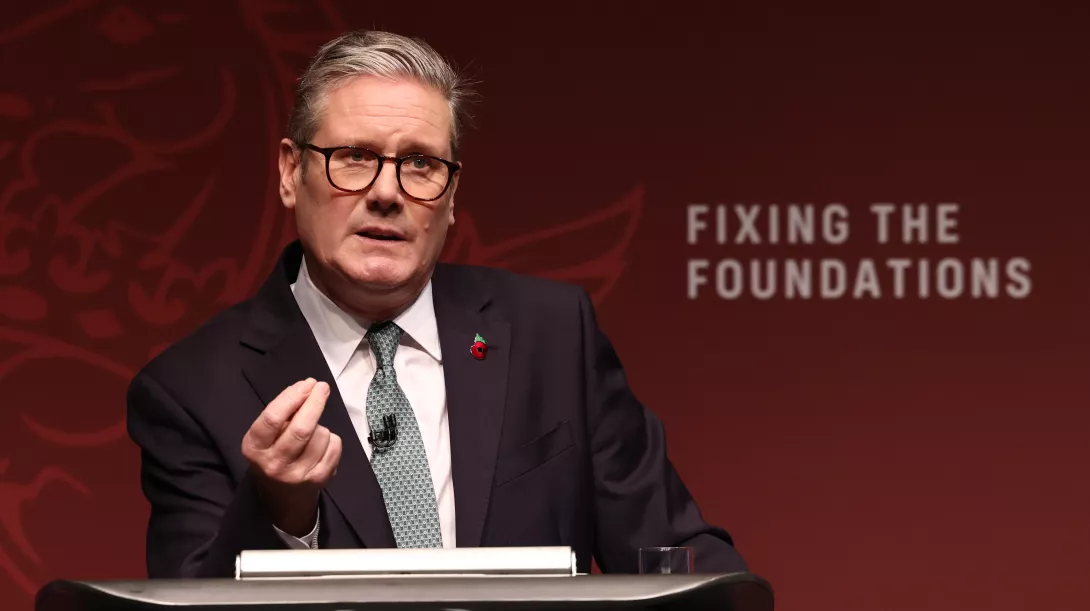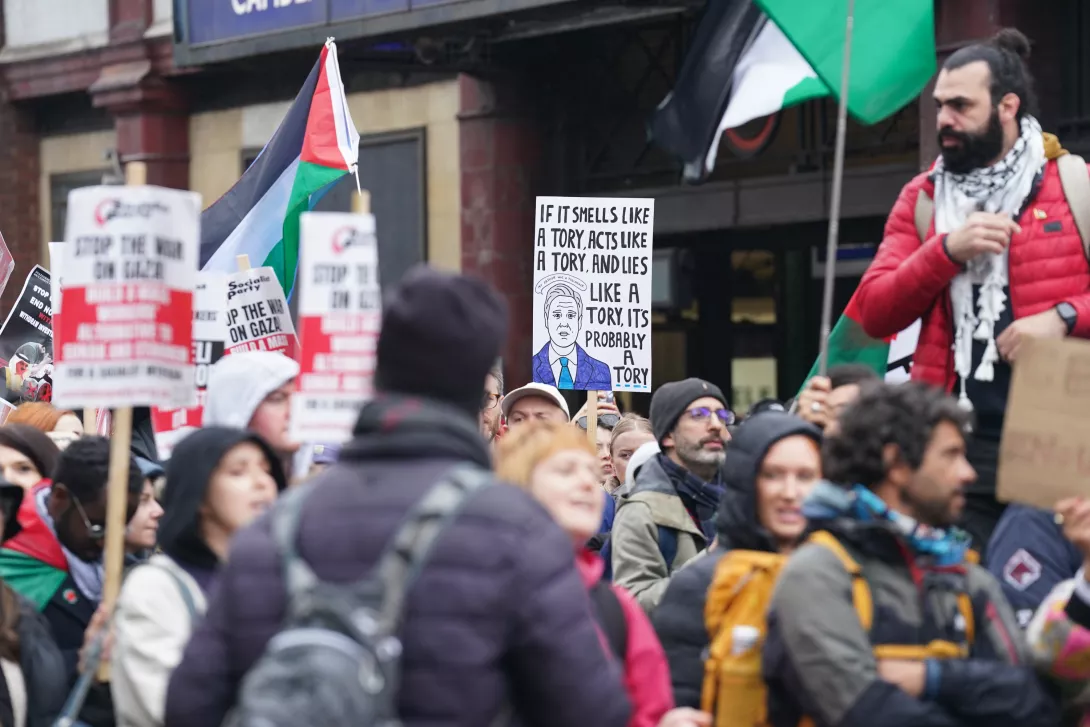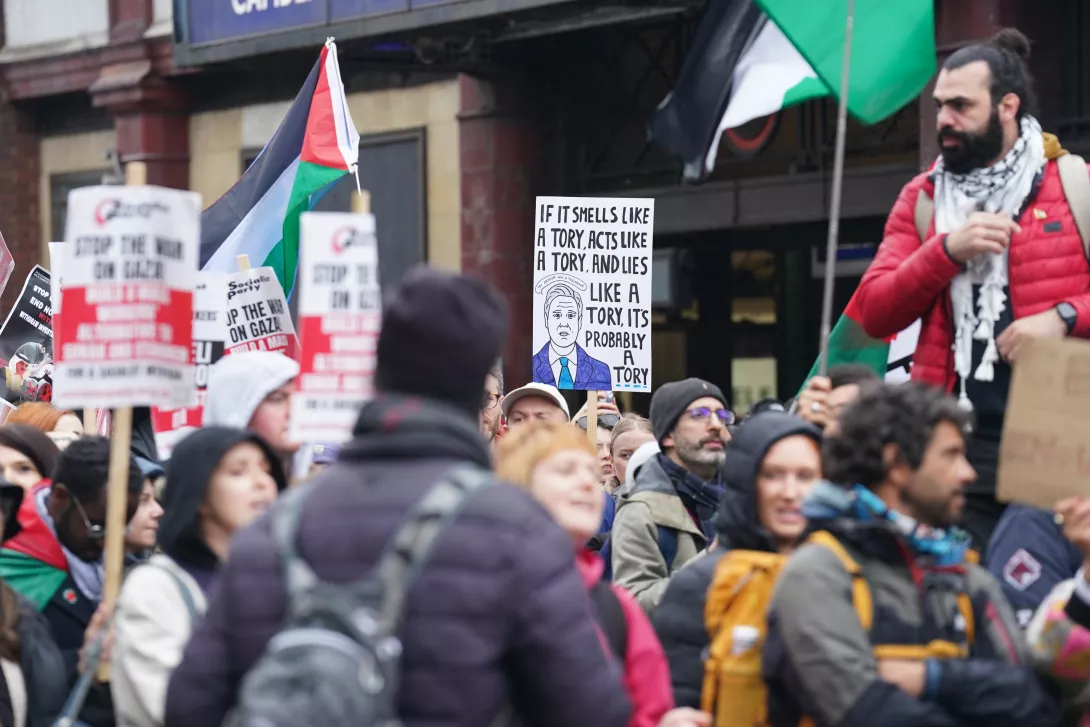
ISRAEL’S ambassador to Britain, hard-right politician Tzipi Hotovely, has said it out loud.
Israel will never, she told Sky News, accept a two-state solution to the crisis in Palestine. That is an embarrassingly blunt admission for the US and British governments, which continue to rhetorically advocate the creation of a Palestinian state alongside Israel.
Hotovely is hardly an outlier. Israeli sovereignty over the entire territory of historic Palestine is a dogma for the Netanyahu government and the revisionist zionist tradition in which it is rooted.
Just this week the Israeli Communications Minister Shlomo Karhi declared: “There will be no Palestinian state here. We will never allow another state to be established between the Jordan and the sea,” — those criticising the use of the “from the river to the sea” slogan on Palestinian solidarity demonstrations please note.
This presumably represents Israeli government policy. It certainly represents what is happening on the ground, where a violent campaign of ethnic cleansing is being directed against the Palestinians on the West Bank by the Israeli state and far-right settlers in collaboration.
This alongside the unimaginable suffering in Gaza, which the Israeli government would clearly like to see conclude with the expulsion of the population into Egypt.
A two-state solution has been the policy of the UN since 1948. It is also the aim of the enfeebled Palestinian Authority.
The alternative of a single secular and democratic state covering all of historic Palestine has very little discernible backing among Israeli Jews, nor is it yet championed by any leading Palestinian political organisation. It also lacks international support.
The third alternative is the one being implemented in practice — Israeli rule over the entire territory; a single state that is not a solution, but an extended exercise in apartheid-style ethnic supremacy.
The US government, with Britain as ever trailing in its wake, occasionally wrings its hands over this. It uses talk about a two-state solution as a cover for conniving in Israeli occupation and aggression in practice.
The prospect of a Palestinian state alongside Israel is being talked up once more by the same powers, as they militarily and diplomatically support the genocidal assault on Gaza.
There are some who hope that the departure of Netanyahu from office, assumed to be imminent, may shift the balance towards peace.
But the problem goes deeper than the Likud coalition. There are now half a million settlers in the territory of a putative Palestinian state, and they exercise growing control over Israeli politics.
Those settlers occupied the West Bank with the more-or-less united approval of Israeli politicians, including the Labour Party. Advocates of two states need to consider how this occupation can be reversed in practice.
While there are forces in Israel that would support the creation of some form of Palestinian state, they have long been politically defeated and marginalised.
The danger now is that pressure will be applied on the Palestinian people to accept some variation on the noxious Trump plan — a rump collection of Palestinian bantustans entirely surrounded by Israeli territory and under effective Israeli domination.
That is not a pathway to peace. Only a full Israeli withdrawal from all territory occupied after 1967, allowing a Palestinian state with a capital in East Jerusalem to be established, alongside justice for Palestinian refugees will do.
In turn, it will require serious and sustained international pressure on Israel, including through the Boycott Divestment and Sanctions campaign, to breathe life into that two-state project.
Absent that, it is inevitable that the massacre in Gaza will lead to other options being considered by Palestinians and around the world.
